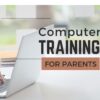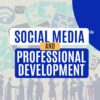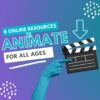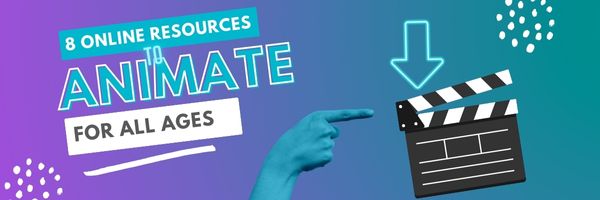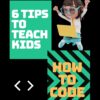Jacqui Murray has been teaching K-18 technology for 30 years. She is the editor/author of over a hundred tech ed resources including a K-12 technology curriculum, K-8 keyboard curriculum, K-8 Digital Citizenship curriculum. She is an adjunct professor in tech ed, Master Teacher, webmaster for four blogs, an Amazon Vine Voice, CSTA presentation reviewer, freelance journalist on tech ed topics, and author of the tech thrillers, To Hunt a Sub and Twenty-four Days. You can find her resources at Structured Learning.
Author: Jacqui
How to Teach Students: Teach Their Parents
If parents don’t value tech, students won’t. If parents are confused by what you teach, they will pass that on to their children. Be open to parents. Answer their questions. Never EVER leave them feeling intimidated. Let them know that lots of people feel exactly as they do.
A great solution I’ve had a lot of success with: Have a parent class. I schedule this after school while parents are waiting for their children to finish enrichment classes or sports. They’re hanging around anyway–why not learn something. Cover topics that parents are asking about, should be asking about, and/or their students are asking about:
- show how to log onto and use the school website
- show how to log into the school online grade reports
- demonstrate how to use the school online library/lunch order system (or similar)
- review what is being covered in K-5 classes (depending upon who is in the parent class)
- review your philosophy. Model this philosophy as you teach parents
- provide skills parents want, i.e., making a flier for the school soccer team
- show the progression of skills from kindergarten to 5th in one program, say word processing. Start with an art program; move into Word
- answer tech questions they have from non-school problems–even if a home system
Here’s my flier inviting parents to attend (just a sample):
Share this:
22 Ways to Add Rigor to Your Class
Let’s start by clearing up a misconception: Rigor isn’t unfriendly. Adding it to your class doesn’t mean you become boring, a techie, or overseer of a fun-free zone. In fact, done right, rigor fills your class with Wow, those epiphanies that bring a smile to student faces and a sense of well-being to their school day. Rigor provides positive experiences, is an emotional high, and engenders a pervasive sense of accomplishment students will carry for years–and use as a template for future events.
It is NOT:
- lots of homework
- lots of projects
- lots of resources
- lots of rules
When those are used to define rigor, the teacher is flailing–thinking quantity is quality. Rigor is not about adding a column of data or remembering the main characters in a Shakespeare novel. It’s seeing how that knowledge connects to life, to circumstances and to daily problems.
Simply put, adding rigor creates an environment where students are:
- expected to learn at high levels
- supported so they can learn at high levels
- cheered on as they demonstrate learning at high levels
It helps students understand how to live life using brain power as the engine. Sure, it will ask them to collect evidence and draw conclusions that may find disagreement among their peers. It will insist they defend a position or adjust it to reflect new information. And it will often move them outside their comfort zone. It will also prepare them to solve the problems they will face in the future.
Share this:
7 Tips for Using Social Media for Professional Development
Tell me if this sounds familiar:
With the 2023 New Year, you resolved to build your Professional Learning Network–finally, to stop living in the 20th century where your world revolved around a sticks-and-bricks building, a landline phone, and the mailbox. You joined all the big social media platforms (X, Facebook, LinkedIn, blogging–just for starters). The plan was to learn from the movers and shakers in education, have them as a resource when you needed help on a lesson plan or to select the perfect webtool for a project. You committed hours to it, and then days, eager to make this work because everyone you know talks about how much they learn from social media. Now, six months into it, you know too much about your followers’ lunch plans and almost nothing about their educational pedagogy. You’re frustrated, angry, and ready to give this whole failed effort up.
Without knowing anything about you other than that paragraph above, I’m going to predict that you became overwhelmed by the volume of information that flooded your inbox every day. The purpose of a social media-based PLN is to extend your reach beyond the narrow confines of the bubble you live in, not lose everything important in constant noise.
Before you unplug, try these seven steps to clean up the clutter, smooth out the wrinkles, and put you back in the driver’s seat of your online life:
Keep your stream pure
Only accept friends in your professional area of interest. This is less like a speed-dating party and more like a job application. When you come across a promising educator, visit their social media, pass judgment on whether they fit your needs, and then make a decision.
Share this:
7 Highly Useful Tech Skills to Develop if You’re Aiming for a Career in Accounting
I used to be pretty good at accounting because I was a whiz with spreadsheets and data analysis. That changed when accounting began relying heavily on technology. Well, to be honest, traditional accounting–financial analysis, auditing, and tax knowledge–might still revolve around my sweet spots, but the rest, I now hire skilled professionals.
And I’m not the only one who realizes the importance of tech skills in accounting has changed. One of our Ask a Tech Teacher members has a great article outlining the tech skills you’ll want to look at if you’re interesting in pursuing an accounting career after high school:
7 Highly Useful Tech Skills to Develop if You’re Aiming for a Career in Accounting
In the digital era, the accounting industry has tightened its embrace of technology, transforming traditional roles into tech-oriented ones. Undeniably, tech skills have become just as essential as understanding debit and credit for accountants as computers become necessary for work.
These technological competencies allow accountants to streamline their work, provide more in-depth analysis, and enhance decision-making processes. Whether you’re just stepping into the world of accounting or aspiring to advance your career, sharpening your tech skills will unlock new opportunities and make you a much sought-after professional in this industry.
Share this:
8 Online Resources for Animation
Here are eight online resources for quick animations. For updates on this list, click here:
- Animate with Krita–free Photoshop-like program for animation (see video below)
- Animation and 3D Templates from MS
- Brush Ninja–free and no registration required
- ChatterPix–make anything talk
- Draw and Tell–for K-2
- PowerPoint–a video showing how to create animations in PowerPoint
- Puppet Pals HD (free app)–Create your own unique shows with animation and audio in real time
- Wick Editor–free, open source, to create games, animations, and more
If you’re not familiar with creating animations, here’s a longish video on using one popular program:
Share this:
What do Parents Ask About Technology in Education?
I have written in the past about parent questions concerning technology in education, but always from the perspective of a teacher at the classroom. Now, I teach grad school classes online to practicing teachers and want to see if those questions are the same.
So I asked my grad school students: What questions do parents ask you about technology and education? Here are the top issues:
Share this:
Patriot Day 9/11 Never Forget
America, we love you on Patriot’s Day (formerly 9/11).
[youtube https://www.youtube.com/watch?v=EvsN0Id4LEg?version=3&rel=1&showsearch=0&showinfo=1&iv_load_policy=1&fs=1&hl=en&autohide=2&wmode=transparent]
[youtube https://www.youtube.com/watch?v=mwcWVs4Eejg?si=nfBd6Unur6CmgiUH&start=35]
[youtube https://www.youtube.com/watch?v=wucTW_Y5hgU?version=3&rel=1&showsearch=0&showinfo=1&iv_load_policy=1&fs=1&hl=en&autohide=2&wmode=transparent]
If you aren’t familiar with this terrorist attack, here’s a 2-minute overview:
[youtube https://www.youtube.com/watch?v=9uOn7xLYPbc?version=3&rel=1&showsearch=0&showinfo=1&iv_load_policy=1&fs=1&hl=en&autohide=2&wmode=transparent]
[youtube https://www.youtube.com/watch?v=A9oPmD6XJD0?si=LBKrjDQzQnYmLey2]Share this:
9 Online Resources to Assist with ESL and ELL
Here’s a short list of good ESL and ELL resources. For updates, click here:
- Digital Storytelling for Language and Culture Learning (PDF) – National Writing Project
http://www.nwp.org/cs/public/download/nwp_file/12189/Judith_Rance-Roney_Digital_Storytelling.pdf?x-r=pcfile_d - L2 Digital Storytelling
- MCC ESL Digital Stories
- Teaching English – Digital Storytelling
http://www.teachingenglish.org.uk/blogs/özge-karaoğlu/digital-storytelling - Web English Teacher – Digital Storytelling
http://www.webenglishteacher.com/ds.html
ESL
- English Tools--digital tools to assist learning English as a second language
- Resource Guide for ESL
- SuperProf–private ESL online tutoring
- The TEFL Academy–course provider for those looking to teach English as a second language!
–image credit Deposit Photos
Share this:
Getting Started with Ask a Tech Teacher–Here’s How
If you’re new to Ask a Tech Teacher, be sure to click Getting Started first. It includes a free weekly newsletter:
https://forms.aweber.com/form/07/1910174607.htm
Read our columns
- Tech tips
- How-to’s–how to use web tools, software, hardware, more
- Dear Otto–questions from educators on tech questions
- Pedagogy that impacts tech in ed
- Reviews of books, apps, web tools, websites, tech ed products used in your classroom
- Subscriber Specials–monthly discounts (or FREE) on tech ed products
- Humorous life of a tech teacher
Find tech ed resources
- Free Lesson Plans–on software programs, core tech principles, subject-specific topics
- Free Posters
- Website reviews–on products you want to use in your classroom
- Great resources–for your teaching, integration, class management, more
- Structured Learning--where all the Ask a Tech Teacher crew’s tech ed books are published; there’s an insane number of topics and formats. Some free, most fee
Go ahead–check it out!
Share this:
6 Tips for Teaching Kids Coding
Learning to code is akin to receiving the key to a world of opportunities. It’s not about zeros and ones, or math and science. It’s about solving problems kids didn’t think they could, in creative ways that feel good. It gives students the power to shape a world they’re becoming part of, for many the key to a brighter future than their current one.
The Ask a Tech Teacher crew has come up with a foundational list of tips for teaching coding. Read them. Share in comments what your secret techniques are:
6 Tips for Teaching Kids Coding
If you were around when the internet first came out, you may have seen how coding was a career for specialized professionals. These professionals needed to get a specialized degree, and they gained experience through building software. But today, coding has become more accessible, and everything online was made through coding, and today’s employers are looking for employees who can code. If you are preparing to teach kids how to code, there are a few things you should know.

